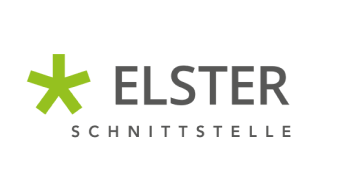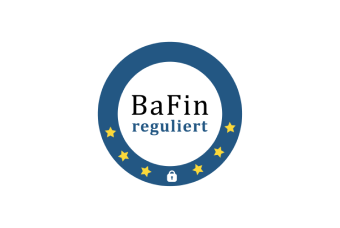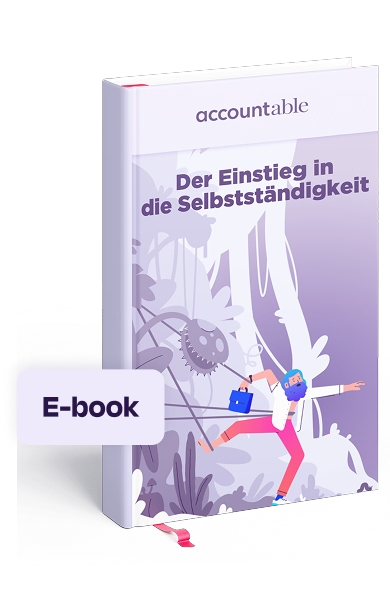Freelancing in Germany is no simple feat. In addition to the financial risks you take on when you're in charge of your own income, you also have to deal with the time-consuming tasks of taxes. Many freelancers are unsure—especially in the beginning—how much of their income they should set aside for taxes. In this article you’ll find an overview of the taxes you’ll have to pay and a guide to how much money you should set aside for your tax payments.
Anyone undertaking gainful employment in Germany must pay income tax to the Finanzamt (tax office), regardless of what line of work you're in or the nature of your employment.
For the self-employed, however, you must also factor in VAT (Value Added Tax), which is a type of sales tax. That is, unless you’re considered a Kleinunternehmer (small business owner). The Kleinunternehmerregelung can be particularly useful when you’re in your first year of managing your freelance business. More on this later.
If you are registered as a Gewerbetreibender (tradesperson), you are also obliged to pay Gewerbesteuer (trade tax).
Do you want to register as self-employed? Fill in the official Fragebogen zur steuerlichen Erfassung for free and submit it directly to the Finanzamt
Go to the form


As a freelancer living and working in Germany, you must pay income tax on any income you earn throughout each tax year. How much you pay depends on the amount of taxable income you earn. Taxable income refers to the amount you earn after business expenses have been deducted. The income tax you owe is determined on a percentage basis, with a maximum rate of 42%. To ensure you’re taxed at a fair rate, you must make sure to declare all business expenses correctly and completely in your income tax return.
Managing your taxes as a freelancer in Germany
For 2020, the Freibetrag (tax-free threshold) for income tax was 9.408€ for single self-employed persons. In the 2021 tax year, this threshold rises to 9,744€. If your entire income amounts to less than these amounts in the relevant tax year, you are not obliged to pay income tax - unless you're married, in which case your partner's income will be considered in your own tax return. For example, if an unmarried entrepreneur generated a taxable income of 25,000€ in the tax year 2020, the amount that is subject to income tax is 15,592€.
To determine what tax rate applied to you, make an estimation of the amount of income you expect to generate in a year, and enter it into an income tax calculator, such as the one offered by the Federal Ministry of Finance.
In the first few years of the business, you usually pay income tax later in the following year, once you have received your Einkommensteuerbescheid (income tax statement). Once the Finanzamt has an overview of your levels of income, you will be asked to pay it in advance, in quarterly payments. You'll receive a letter from your Finanzamt advising you of the amount you have to pay each quarter, as well as the payment deadlines. You can then make sure to set aside enough money each quarter to make those prepayments. If, at the end of a tax year, your tax prepayments amount to more than the tax you're obliged to pay for that year, you will receive a tax return. If you earned more than expected, however, you will have to pay an additional amount.
💡 Tip from Accountable: With our app you can see all your expenses and income. This way, you always know how much you have to set aside for taxes.
The what? The Solidaritätszuschlag (solidarity surcharge), often just called Soli, is an additional tax that some people living and working in Germany must pay, in addition to income tax. This tax is 5,5% of your taxable income, but only once you earn above a certain threshold. The Soli was originally introduced to cover the costs of the Gulf War and to support economically weaker countries in the EU. Today, it's mainly used to cover the costs of the German reunification.
In 2020, however, it was decided to abolish this solidarity contribution. Now, only top earners have to pay it still. Check if it applies to you so that you know wether you need to keep funds aside for this tax.
If you have a business as a Gewerbetreibender (tradesperson), you also have to pay Gewerbesteuer (trade tax). The amount of the tax depends on the municipality in which your business is registered. You can ask for the specific percentage at your local Finanzamt and take it into account in your financial planning.
However, the tax-free amount of 24,500€ applies throughout Germany. So, keep an eye on your income and expenses and whether you can expect to exceed this tax-free amount. As soon as this is the case, you should set aside part of your income for the Gewerbesteuer.
As a self-employed person, you usually must charge VAT on your goods or services and in turn pay VAT to the Finanzamt. It's different from income tax and trade tax, as it's added to the invoice amount and is shown separately on invoices.
💡Tip from Accountable: Generate perfectly compliant invoices using the Accountable template!
VAT is usually charged at 19% or 7%, depending on the type of work you do. Because of the Covid pandemic VAT was reduced to 16% and 5% in 2020. But as of January 2021, the regular VAT rates apply.
Like income tax, you will likely be asked to make VAT pre-payments on a monthly or quarterly basis, which will be balanced when you submit an annual VAT declaration. However, unlike income tax, you're required to submit an estimation of VAT owed, which helps to determine your prepayments. Make sure you submit these estimations and prepayments on time to avoid fines.
The good thing is, you don't only have to transfer VAT to your Finanzamt, you also get it back yourself. You can claim it for all purchases related to your business. Then, the VAT that you pay for own services as a self-employed person is deducted from those you have to pay yourself. To figure out how much money to put aside for your VAT payments, keep an eye on how much VAT you charge each month or quarter, as well as what sort of VAT expenses you can deduct.
Example 1:
You are a self-employed jewelry designer and create jewelry. For producing it, you need to purchase materials such as silver, gemstones and packaging material. For these goods you pay VAT, which you can then claim in your VAT return.
Example 2:
You write an invoice for 100€ and add the 19% VAT, that's 19€. So your customer pays 119€ in total. You then give the 19€ to the Finanzamt. This percentage always stays the same. Unlike the income tax, it doesn't change with how much you earn.
If you earn less than 22.000€ in your first year of freelancing, and less than 50.000€ in the second year, you don't have to charge or pay VAT. To do so, you can register as a Kleinunternehmer directly when you register as a freelancer and fill in the 'Fragebogen zur steuerlichen Erfassung'. But you can also apply for this exemption later on.
In that case, you must explicitly state on your invoices that you are exempt from VAT and, of course, you are not allowed to charge it.
💡 Tip from Accountable: It’s quick and easy to save your invoices with Accountable, thanks to the integrated photo scanner. This way, you always know how much VAT you can claim for your business expenses.
When starting any business, it's difficult to predict how much you'll make in profit in the first year. However, the closer you can get to estimating your income, the more accurately you can anticipate how much tax you'll have to pay.
Since most of your taxes are paid retroactively in the first tax year of your self-employment, you won't have to pay in advance. This can be a blessing and a curse. The blessing is, you don’t have to keep on top of quarterly tax payments. The danger is that you still need to be prepared to pay your annual taxes in a lump sum the following year, in which you may also be required to start making quarterly payments. If you don’t set any money aside for taxes, you’ll be in for a rude awakening!
Keep track of your income and expenses and remember the tax-free threshold to help estimate how much tax you'll need to pay. The Accountable app is a great tool to help you.
You’ve taken a very important first step by informing yourself about what taxes you need to keep money aside for as a freelancer in Germany. Stay on top of the ball by planning for other costs that full time employees often take for granted and new freelancers often don’t anticipate. As a freelancer, you aren’t provided with sick or holiday pay, you must pay for your own health insurance, and you’d be wise to think ahead about how you’ll fund a retirement plan, too.
In any case, don’t just spend all your income at once. Get into the habit of allocating funds to different aspects of your business and life and you’ll find you have a lot more energy to focus on doing the work that you love!
20 Kapitel knallhart recherchiert und vom Steuerprofi geprüft
Kostenlos herunterladen

Author - Sophia Merzbach
Sophia has been a key member of the Accountable team for many years, bringing a unique blend of journalistic precision and in-depth tax expertise to her work.
Who is Sophia ?Thank you for your feedback!
Useful
How much income tax is deducted from your income is largely determined by your tax class. There are ...
Read moreWorking as a self-employed professional has many advantages: You are your own boss and you can choos...
Read moreWorking with international clients can be tricky, depending on where exactly they’re located, whet...
Read more